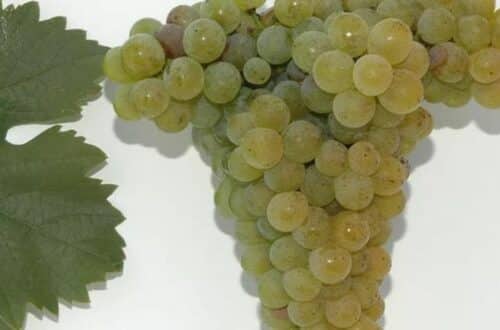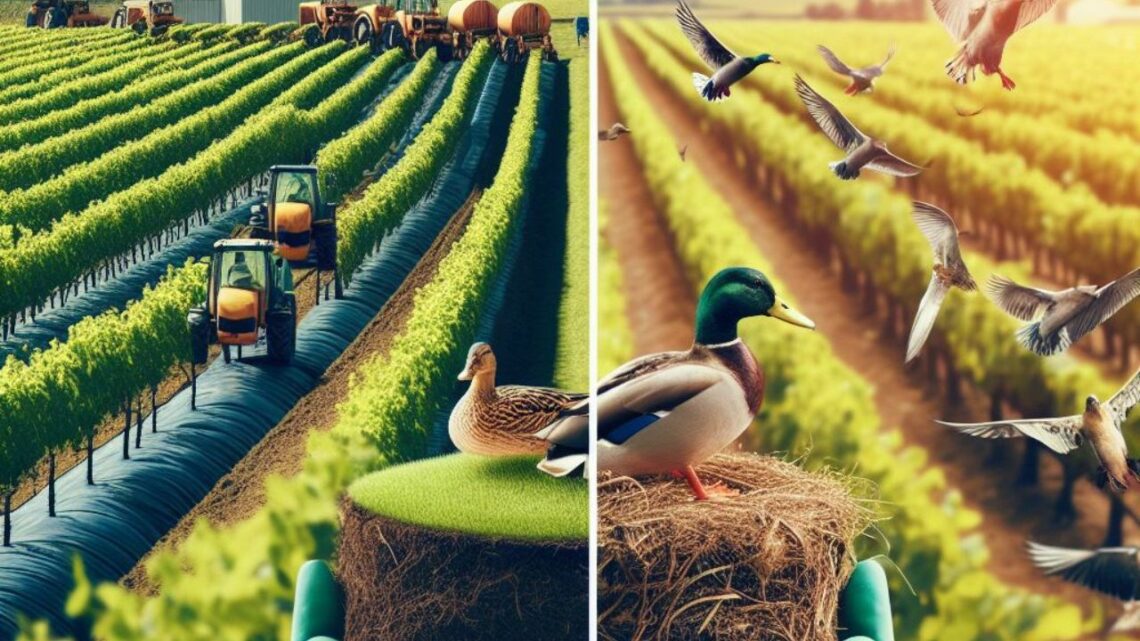
Organic Winemaking In Austria
Like I said in my previous post, I love Austrian wines…but not only for their taste.
Austria is now a leader in environmentally friendly winemaking, with over 40% of its vineyards embracing sustainable practices. This isn’t just a trend; it’s a deep commitment to nature.
Organic and biodynamic methods are at the heart of Austria’s eco-conscious approach. These methods ditch synthetic chemicals and prioritize nature. The wines that are produced are terroir-wines because they directly reflect the essence of the terroir (soil, climate, winemaker)
They’re also dedicated to protecting their environment. A significant portion of their land is dedicated to biodiversity preservation, fostering the return of native plants and animals.
So, the next time you raise a glass of Austrian wine, remember – you’re not just nice (cheap) glass of wine, you’re clinking glasses with nature (well, that’s the image I got in my head anyways while writing this post!).
Stopping the metaphors and getting back to what is organic wine in Austria. What does it mean?
Forget synthetic chemicals, Austria’s all about natural methods when it comes to crafting delicious wines. This eco-friendly approach is like a win-win-win! Healthy soil where biodiversity thrives. In the cellar, things are kept real with organic grapes and minimal sulfites. Plus, choosing Austrian organic wines is a big thumbs up for the planet, and studies suggest they might even pack an extra punch of antioxidants – those good-for-you compounds found in grapes! Austria isn’t just keeping up with the organic trend; they’re crushing it! With a whopping 22% of their vineyards going green, they’re rubbing shoulders with big names like France and Italy. And get this: in the last five years, they nearly doubled their organic vineyard space
- Organic Winemaking Principles and Practices in Austria
- The Unique Challenges and Opportunities of Organic Winemaking in Austria
- Pioneering Austrian Winemakers: Champions of Organic Practices
- Benefits of Organic Winemaking for the Environment and Human Health
- Discovering the Treasures of Organic Wine in Austria
- How to choose your Austrian Organic Wine?
- Finding Your Perfect Sip: Resources Galore!
- Wine Culture Unveiled: Captivating Festivals and Auctions
- Conclusion : Organic Winemaking in Austria
Organic Winemaking Principles and Practices in Austria
To put it simply (and it is simple…sort of) : instead of relying on synthetic chemicals, Austrian winemakers nurture their grapes with natural methods.
Think of it as a partnership with nature – a way to promote biodiversity and keep the soil healthy for generations to come.
It’s a more natural, earth-friendly way to make delicious wines you can feel good about enjoying.
1) Organic Vineyards: A Haven for Biodiversity
Step into an Austrian organic vineyard, and you’ll see a commitment to a thriving ecosystem.
How do they do it? Let’s find out :
- Ditching the D-word (pesticides): Synthetic pesticides, designed to eliminate pests, can harm the environment and even our health. Organic winemakers rely on natural pest control methods – think cover crops attracting beneficial insects and introducing natural predators to keep things balanced.
- Weed Management the Natural Way: Out with herbicides and in with alternative methods like hand-weeding and mechanical cultivation. This ensures healthy vine growth without disrupting the delicate balance of the ecosystem.
- Nourishing the Soil Naturally: Synthetic fertilizers might boost yields, but they can pollute water and harm the soil. Organic winemakers use natural fertilizers like compost and manure (organic matter), feeding the vines while nurturing the lifeblood of the vineyard – the soil itself.
2) The Natural Processes Continue in the Cellar
Of course, but sometimes you have to state the obvious : the commitment to natural methods extends beyond the vineyards.
Organic winemakers prioritize:
- Organic Grapes and Yeast: They use grapes and yeast grown without synthetic chemicals, allowing the natural flavors of the grapes to shine through.
- Minimal Sulfites: Sulfites are commonly used as preservatives in winemaking. Organic winemakers use them sparingly to ensure freshness while maintaining the wine’s natural character.
- Preserving the Essence: Techniques like partial concentration by cooling, desulphurization, and heat treatment are avoided. These methods can alter the natural character of the wine, something organic producers strive to preserve.
3) The Result? Sustainable Wines That You’ll Enjoy
These practices aren’t just good for the environment; they contribute to the unique taste and quality of organic Austrian wines.
By choosing organic, you’re not just enjoying a delicious drink – you’re supporting sustainable practices that ensure the future of Austrian winemaking and a healthy planet.
And what better way to support the environment than by drinking wine?
The Unique Challenges and Opportunities of Organic Winemaking in Austria
Organic winemaking in Austria isn’t for the faint of heart!
The country’s diverse landscapes, especially those hilly regions, can throw some curveballs at grape growers.
I mean, picture Wachau and its terraces : of course, harvesting is going to be by hand. Hills mean microclimates and ever changing weather, so you have to be on the toes all year long every year.
So, these winemakers have a challenge on their hands.
But here’s the thing: Austria has some serious natural advantages when it comes to organic grapes.
Think long stretches of sunshine, well-drained soils, and those cool evening dips in temperature – it’s basically a recipe for happy, healthy grapes.
Plus, Austria has a long history of sustainable viticulture, so they’ve got a wealth of organic know-how under their belts.
So, despite the challenges, Austria has become a leader in organic winemaking.
They’ve learned to navigate the hurdles and leverage their natural assets, resulting in some truly exceptional organic wines.
Pioneering Austrian Winemakers: Champions of Organic Practices
Now with every good practice there’s a leader (another one of my many interests, I’m passionate about leadership also, it’s amazing how much some people can take on their shoulders! And who knows, I might lead French people into drinking Austrian wine. What a challenge ha!)
Anyway, back to the wine, and more precisely, the organic winemaking.
Like I said earlier, organic winemaking isn’t just a fad. There are dedicated folks making impressive wines while being “champions of the environment”.
Take Alois Kracher, a legend in Burgenland known for his exquisite Trockenbeeren Auslese (TBA) wines.
Want to see it again?
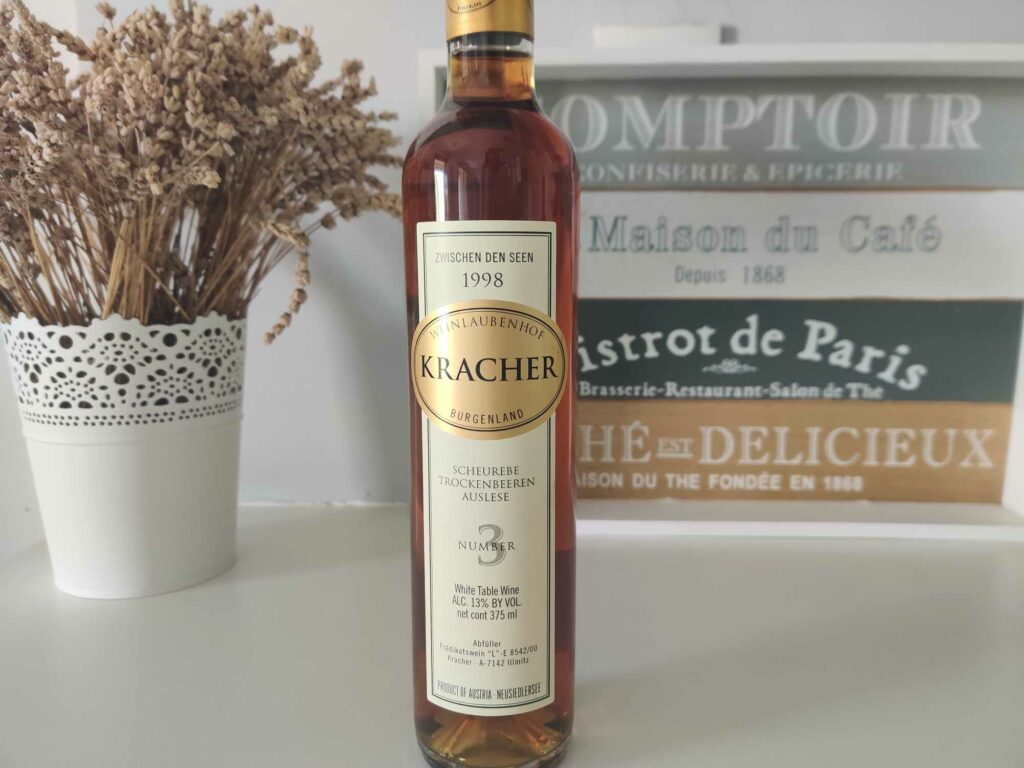
But Alois isn’t alone.
Austria has a whole movement of pioneering winemakers leading the charge, such as Nikolaihof and Jamek in the Wachau, Bründlmayer and Jurtschitsch in Kamptal, Geyerhof in Kremstal…
And you can see me coming… Biokult!
Biokult is a group of organic winegrowers in Austria. Their name itself is pretty awesome – “Biokult” blends “bio” (organic) with “kult” (cult). It directly reflects their dedication to sustainable winemaking.
You’ll find some names I just listes like Jurtschitsch and Geyerhof, but you’ll also find other names that might (should, if you’ve been reading my posts) ring a bell such as: Preisinger, Prieler, Weninger, Hutter, Pöltl, Schulz, Wurm, and Zillinger.
We’re talking everything from elegant Grüner Veltliner to rich Blaufränkisch – there’s something for every taste bud!
But these names are just the tip of the iceberg, there’s many more
Take the Michlits family in Burgenland, for example. They’ve been rocking organic viticulture since the 90s, using biodynamic methods and unique tanks to boost their wines’ natural character. Talk about dedication!
Then there’s the Haider family in Seewinkel, with generations of experience in organic farming. Their vineyards are basically balanced ecosystems with goats and chickens chilling alongside the grapes. Pretty cool, right?
But Biokult isn’t just about the wine.
They minimize their environmental impact by using recycled materials for labels for instance.
They’re proving that exceptional quality and environmental responsibility can go hand-in-hand.
Their mission? To make that are a tribute to the land they love.
So, next time you raise a glass of Austrian organic wine, remember the passionate pioneers behind it. They’re not just making wine; they’re creating a legacy.
Benefits of Organic Winemaking for the Environment and Human Health
Organic winemaking is a double wine for Mother Nature and your health!
Let’s break it down:
- Happy Vineyards, Happy Earth: Organic farming gives the soil a major high five! It gets more fertile, holds onto water better, and becomes a haven for all sorts of cool plants and creatures. This translates to healthier vineyards that can weather any storm (well, maybe not a literal storm, but you get the idea!).
- Nature’s Playground: Ditching those synthetic pesticides and herbicides is like putting up a “Do Not Enter” sign for harmful chemicals. This keeps the water clean, wildlife safe, and lets the vineyard party with all the good bugs and tiny critters that make a healthy ecosystem thrive.
- Sip Easy, Live Well: Organic wines generally have lower levels of sulfites, those preservatives sometimes used in winemaking. This is fantastic news for anyone with sensitivities who wants to enjoy a glass without worry.
- Say No to Sketchy Stuff: Opting for organic means saying goodbye to potential pesticide residues. These can be a bit iffy for health, so going organic is like giving your body a high-five (much better than a high five from a pesticide, right?).
- Antioxidant All-Stars: Studies suggest organic wines might pack an extra punch of antioxidants, those good-for-you compounds found in grapes. With fewer pesticides around, the antioxidant power gets to shine even brighter!
So, next time you reach for a glass of Austrian organic wine, remember: it’s not just a delicious choice, it’s a toast to a healthier environment and a little boost for your well-being.
I’ll drink to that!
Discovering the Treasures of Organic Wine in Austria
Hold onto your hats, wine lovers!
Austria just made a massive statement in the world of organic vineyards.
Back in 2022, they were rocking a whopping 9,901 hectares – picture that as 9,901 football fields overflowing with organic grapevines! Even crazier? This translates to a cool 22% of all Austrian vineyards going green.
Here’s the thing: Austria isn’t just keeping up with the organic trend, they’re like the leaders of eco-friendly wine!
While the whole world is getting on board with organic grapes, Austria shines extra bright.
Get this: 91% of all organic vineyards are concentrated in just 10 countries, and Austria proudly holds a spot among the big shots like France and Italy. Not bad for a smaller country, right? They’re rubbing shoulders with the big leagues!
And the good news keeps pouring in (pun intended)! Austria’s organic vineyard space nearly doubled in the last five years.
How to choose your Austrian Organic Wine?
Okey, now that you know all about organic wine, how do you choose?
Or, which labels to look for?
Spotting the Organic Stars: Label Lowdown
First things first: keep an eye out for those trusted labels like EU Organic or Austrian Biowein. These are your golden tickets, guaranteeing the wine follows strict organic practices.
Here’s the deal: to earn this certification, the winery and its wines get the once-over to ensure everything’s up to snuff. Plus, this certification is like a lease – it’s valid for a year, then needs to be renewed. And guess what? For a wine to be labelled organic, those grapes gotta be 100% organically grown.
Keep an eye out for the “EU Organic” seal – that’s your visual cue!
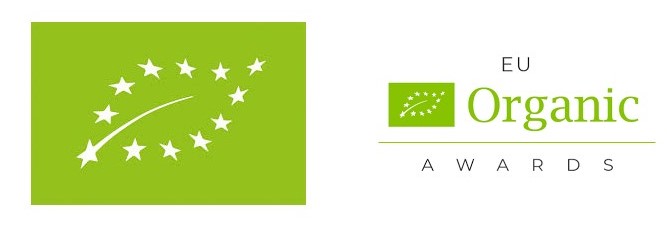
Now, let’s talk about the rules of the game. When it comes to organic farming in Austria, both the European Union (EU) and Austria itself call the shots.
Here’s a breakdown of the key players:
- The EU Sets the Baseline: The EU is like the foundation for organic rules in Austria. It’s the minimum requirement that all EU countries got to follow.
- National Plant Protection Act: Austria ups the ante with its own set of rules, like the Plant Protection Act. This means they have extra regulations, especially when it comes to stuff like using copper compounds in the vineyards. They’re basically saying, “We want even stricter standards than the EU!”
- BIO AUSTRIA: The Organic Rockstars: Austria has its own organic heroes, and BIO AUSTRIA is at the top of the list. Think of it as a club for the coolest organic farmers around. They can even make their rules even more hardcore than what the EU or national laws require. And guess what? BIO AUSTRIA is a massive deal – it’s the biggest organic farmer gang in all of Europe!
Beyond the Basics: BIO AUSTRIA’s Green Game
BIO AUSTRIA takes things to the next level.
Their code of practice goes above and beyond national and EU regulations, setting even higher standards for organic production. They’re serious about keeping things eco-friendly!
For example, BIO AUSTRIA farms have stricter requirements to promote biodiversity in the vineyards. They’re all about reducing waste and ensuring everything they do is good for the environment.
Here are some cool things BIO AUSTRIA does:
- Limited Copper Use: They limit copper use in vineyards to protect the environment and people’s health. It’s like a win-win for everyone!
- Cover Crops & Compost: They require wineries to use cover crops and compost, which is fantastic for soil health and all the cool creatures that live there.
- Longer Wait Between Pesticides & Harvest: This reduces the amount of pesticides that might end up in the wine, making it even purer.
- Strict Cellar Practices: Wineries can only use specific types of sugar for enrichment, and forget about oak chips or other additives that can manipulate the wine’s taste. BIO AUSTRIA keeps things natural!
And of course, they have their own logo!
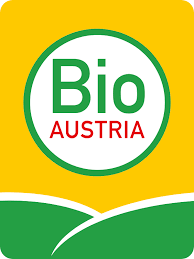
Finding Your Perfect Sip: Resources Galore!
Now that you know how to spot the organic gems, let’s talk about where to find them!
- Online Wine Shops: There are online stores dedicated to organic Austrian wines, like Organic Wine Exchange. They’ll have tons of info, tasting notes, and even reviews from other wine lovers. Check out my full review for the inside scoop!
- Tasting Events: Immerse yourself in the world of Austrian organic wines by joining tastings and events. It’s a fantastic way to try different wines, meet the passionate people who make them, and become a total wine whiz!
And where can you find such events?
Don’t worry, I got you covered!
Wine Culture Unveiled: Captivating Festivals and Auctions
Bioweinmesse Wien
The Bioweinmesse Wien is an annual organic wine fair held in Vienna, Austria.
You’ll get discover and sample a wide range of organic wines.
The fair also features educational seminars, workshops, and food pairings, allowing attendees to learn more about organic winemaking and sustainable practices.
The Bioweinmesse Wien is typically held in the autumn, usually between September and November. The specific dates vary from year to year, so it’s advisable to check the official website for the most up-to-date information.
The Bioweinmesse Wien is typically held at the Messe Wien Exhibition and Congress Center, located at Messeplatz 1, 1020 Vienna, Austria.
It is easily accessible by public transportation, with the U1 subway line stopping directly at the venue.
Regarding ticket purchases, you can buy tickets online through the official Bioweinmesse Wien website or at the venue during the event.
Online ticket sales typically open a few months before the event, and you can choose from various ticket options, such as day passes, weekend passes, and VIP packages.
Respekt-Biowein
While the festival has been held in Salzburg, Austria, for several years, the organizers have expressed their intention to expand the festival to other locations in the future.
The organizers are committed to making Respekt-Biowein a premier international event for biodynamic and organic wine enthusiasts.
They believe that by expanding the festival’s reach, they can help to raise awareness of these wines and promote sustainable winemaking practices.
This could include translating festival materials into multiple languages and providing transportation and accommodation options for visitors from outside of Austria.
To join the Respekt-Biowein festival, you can purchase a festival pass online or at the venue. The festival pass typically includes access to the festival grounds, tastings of various biodynamic and organic wines, and participation in seminars and workshops.
For more information on the festival, including dates, times, and ticket prices, please visit the official website.
Conclusion : Organic Winemaking in Austria
So, all in all, what should you remember?
Austria leads the way in organic winemaking, choosing natural methods over synthetic chemicals. This eco-friendly approach focuses on healthy soil, biodiversity, and natural vineyard allies.
In the cellar, it’s all about organic grapes and minimal sulfites to keep the wine authentic. Picking Austrian organic wines supports a healthier planet and might give you more antioxidants.
Austria’s commitment to organic vineyards stands out with a substantial 22% share, competing with global leaders like France and Italy. In the last five years, they almost doubled their organic vineyard space, showing a strong move toward sustainability.
Pioneers like Alois Kracher and the Biokult families are at the forefront, making outstanding wines with a commitment to sustainability. Biokult, a group of organic winegrowers, shines as an example of Austria’s dedication to organic winemaking.
Starting your Austrian organic wine journey is thrilling. Look for labels like “EU organic,” explore online shops, or join tasting events. Austria follows EU and national rules, with extra guidelines from the National Plant Protection Act. BIO AUSTRIA, with 12,500 members, sets higher standards, emphasizing biodiversity, recycling, and minimal intervention.
Austria’s vibrant organic wine culture comes alive at events like Bioweinmesse Wien and Respekt-Biowein festival.
Whether you’re new or seasoned in wine, Austria’s organic scene has something for everyone.
Now, after this long read, how about we go to the tasting part?
>> Get organic wines delivered directly to your doorstep! <<





